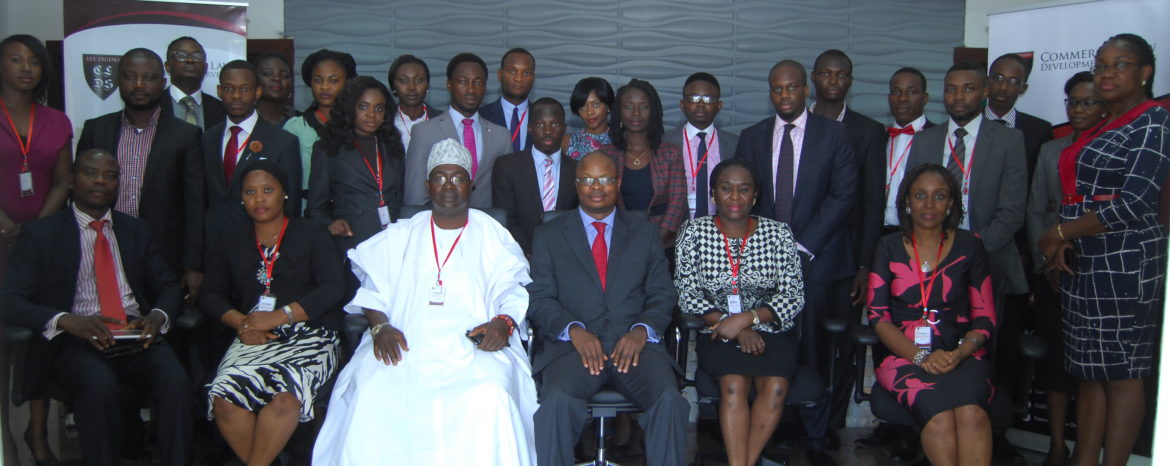The current economic climate in Nigeria has created an uncertain business environment for investors and companies. This is particularly the case with respect to international trade. However, despite the uncertainty and the changes in the landscape of economic policies, opportunities still exist for investors and companies to move their businesses in a new direction.
These opportunities were thoroughly examined at the Seminar on “Structuring Commercial Agreements and Contracts” organised by Commercial Law Development Services (CLDS). The programme featured participants from diverse fields including Legal, Banking, Insurance and Investment firms and Construction.
The event was coordinated by a faculty of experienced and knowledgeable facilitators which include Mr. Yomi Adebanjo, FCIS, Company Secretary, FIDSON and Mr Nicholas Okafor, Partner, Udo Udoma & Belo-Osagie.
Mr Nicholas Okafor led the first two sessions on “Legal Risks in Commercial Transactions” and “Concession Agreements and BOT projects”. He emphasized the need for Due Diligence (DD) in Commercial Transactions. However, he warned that DD is not a substitute for formal contractual protection as it is only used to “highlight red flags for ascertaining required levels of representations, warranties, indemnities and any thresholds and limitations He also explained a concession agreement as “A contract between the Principal and the Promoter in which the concession is defined and granted and essential risks associated with it are addressed, described and allocated.” He concluded his sessions by listing the major concerns of Contractors and Investors.
The third and fourth sessions on “Techniques for Drafting Commercial Transaction Contracts” and “Mergers & Acquisitions: From Term Sheet to Execution” were led by Mr Yomi Adebanjo. He stated that for an effective Mergers and Acquisitions to occur, both parties must reach a compromise on the appropriate method of acquisition. He also emphasized on the need for both parties in a merger to be willing to “accept responsibilities and there should be room for settlement by way of arbitration”
At the end of the training, Certificates of Participation were presented to the participants.


